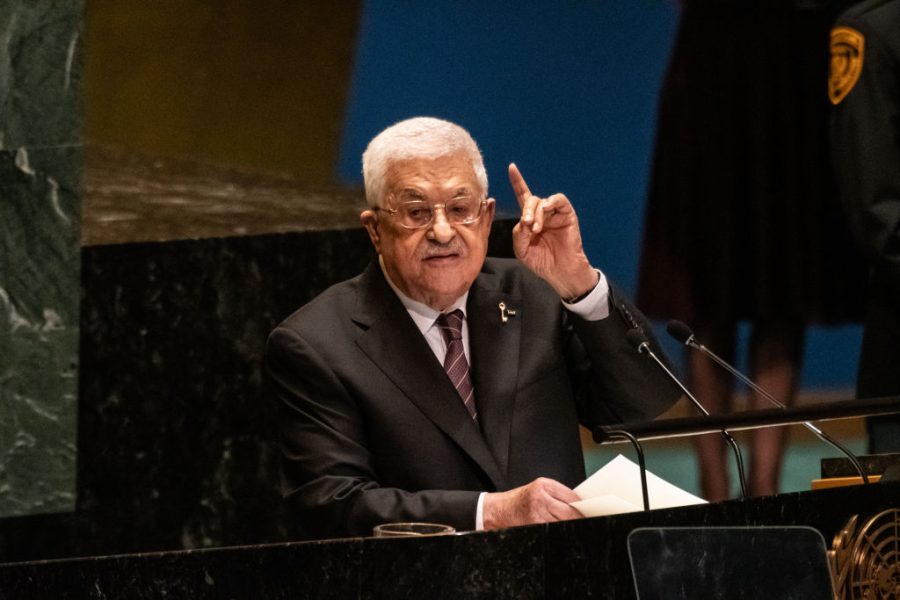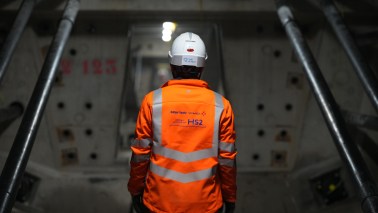As Western leaders prepare to gather in New York this week to discuss international recognition of a Palestinian state, a stark signal from Washington demands their attention. US Ambassador to Israel Mike Huckabee has openly stated that he does not believe Palestinian statehood remains an American foreign policy goal.
‘Unless there are some significant things that happen that change the culture, there’s no room for it,’ Huckabee told Bloomberg News this week, adding that such changes ‘probably won’t happen in our lifetime’. The White House, far from rebuking him, referred reporters to past remarks from President Trump questioning whether a two-state solution ‘is going to work’.
Huckabee’s statement is, of course, one of plain fact – rather like President Trump’s observation in his inaugural address that there are two sexes, male and female. Yet in today’s political climate, even such elemental truths have become politically fraught. In saying it now about Palestinian statehood, Huckabee is doing something more than stating the obvious: he is exposing a long-protected fiction, a tired diplomatic orthodoxy that has endured for decades despite its manifest unreality. It is high time it was said plainly.
This alignment with terror is no aberration
In this spirit, the United States has now issued a formal demarche urging governments around the world not to attend this week’s UN conference co-hosted by France and Saudi Arabia, warning that the gathering is ‘counterproductive’ and will undermine Israel’s security. The message could not be clearer, and underscores a hardening recognition of a grim reality: to reward the current Palestinian leadership with statehood would be a profound moral and strategic failure.
That failure is made plain by an unforgivable truth. For those who previously weren’t paying attention, Palestinian Authority (PA) Chairman Mahmoud Abbas’s recent public praise for the Hamas atrocities of 7 October ought to be a useful wake-up call. Far from condemning the savagery carried out by Palestinian terrorists, he described the massacre as having achieved ‘important goals’. This alone should suffice to disqualify Abbas and the PA from the privileges of statehood. In an interview published last week in the PA’s official daily, Al-Hayat Al-Jadida, and translated by Palestinian Media Watch, Abbas enthusiastically declared:
Hamas launched a sudden attack… killed 1,200 Israelis, abducted 250 others… this attack shook the foundations of the Israeli entity.
He focused not on the massacre of civilians, the rape, or the horror of hostage-taking, but on the ‘strategic impact’ of the assault. He lauded Hamas for exposing ‘the glaring failure of this entity’s components, especially the army and the various security forces,’ and framed Israel’s intelligence lapse as a ‘strategic victory for the Palestinian cause’.
Abbas’s sole expression of regret concerned not the barbarity of the attack but the suffering inflicted upon Gaza:
As important as the goals that Hamas attempted to achieve… they are not comparable to the damages and heavy losses that the Gaza Strip residents… have suffered.
Not a word of remorse for the innocent Israeli lives brutally extinguished; not a flicker of empathy for the abducted. This is not the language of a statesman. It is the cold calculation of a corrupt and barbaric man who sees terrorism as a legitimate path to political gain. We in the civilised world must face down this violent agenda, not only for Israel’s sake, but also for our own.
This alignment with terror is no aberration. Abbas’s senior adviser, Mahmoud Al-Habbash, reinforced the message in March, declaring repeatedly that ‘resistance is legitimate’ and insisting that ‘what happened on 7 October is a legitimate thing’. These statements, emerging on the eve of a United Nations event sponsored by France and Saudi Arabia to advance Palestinian statehood, strip away any remaining pretence. Western leaders must no longer hide behind diplomatic euphemisms.
Abbas’s latest comments are no aberration; they are the blunt restatement of a reality his leadership has embodied for years. Just as President Trump and Ambassador Huckabee have now said openly what many Western leaders privately acknowledge about the futility of a two-state solution, so too Abbas has merely reasserted his unwavering commitment to terrorism and rejectionism.
The true nature of the Palestinian leadership has never been in doubt for those willing to see it. In 2008, Israeli Prime Minister Ehud Olmert offered a peace deal granting a Palestinian state on nearly all of the West Bank and Gaza, with a capital in East Jerusalem. Abbas rejected it outright, later telling the Washington Post: ‘The gaps were wide. We didn’t sign.’ In 2014, during US Secretary of State John Kerry’s mediation, Abbas again walked away – refusing a framework that included land swaps, a shared Jerusalem, and security guarantees, while insisting on full refugee return and rejecting recognition of Israel as a Jewish state.
Faced with the reality that peace would require genuine compromise, Abbas chose another path. In his 2011 New York Times op-ed, ‘The Long Overdue Palestinian State’, he laid bare this strategy:
Palestine’s admission to the United Nations would pave the way for the internationalisation of the conflict as a legal matter, not only a political one.
The goal was clear – to bypass negotiations, to litigate rather than reconcile, and to wage diplomatic and legal war against Israel, adding to the decades of violent terrorism the Palestinians had perpetrated.
This is the essence of even the most moderate parts of the Palestinian political approach: evade the responsibilities of peace, pursue maximalist aims through international bodies, and cultivate a political culture that glorifies and encourages violence. The PA continues to honour ‘martyrs’, to pay stipends to the families of terrorists, and to inculcate hatred in its media and schools. And they are meant to be the ‘moderates’.
With Abbas now openly praising the bloodiest day of anti-Jewish violence since the Holocaust, the moral bankruptcy of his leadership is undeniable. It is grotesque that Western diplomats should contemplate bestowing statehood upon an entity whose leaders celebrate mass murder, less than two years after such a vicious and barbaric attack carried out in pursuit of the same cause. We must ask, what sort of state would we be ushering into existence? Another Islamic terrorist state intent on anti-Jewish violence and bloodshed.
As Itamar Marcus of Palestinian Media Watch rightly stated: ‘Mahmoud Abbas has reminded us once again that if the PA were to become a state, it would be a terror state.’ In this context, Huckabee’s blunt assessment in Jerusalem resonates with unflinching clarity. Unless Palestinian leadership undergoes a radical transformation, there is no room for statehood.
The French and Saudi sponsors of the upcoming UN event, and all attending Western leaders, must confront this reality without equivocation. To proceed even with discussions of recognition in these circumstances is to reward terrorism and embolden those who seek the destruction of a neighbouring state.
Recognition of Palestinian statehood must be contingent on an unambiguous, demonstrated commitment to peace. Abbas and his regime have not merely failed to meet this standard – they have defied it. Until a leadership arises that rejects terror, embraces coexistence, and upholds the sanctity of human life, Palestinian statehood will remain not only unmerited, but a peril to international order. The signals from Washington should serve as a warning. Western leaders must heed it.








Comments